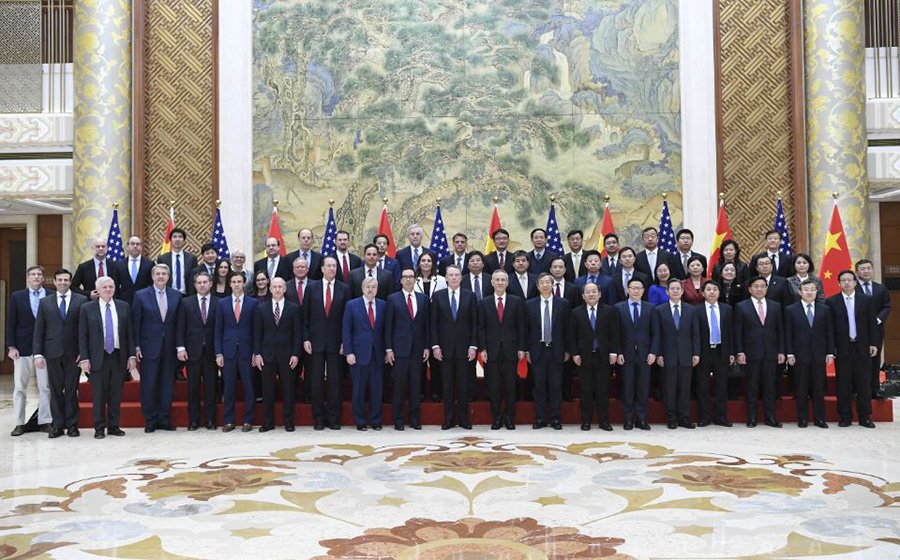The latest round of Sino-U.S. trade talks wrapped up with a positive tone on Friday. After two days of high-level talks, Chinese President Xi Jinping
with U.S. Trade Representative Robert Lighthizer and Treasury Secretary Steven Munchin, noting that there have been critical progressive achievements made after the talks, and both sides will meet again in Washington next week. Lighthizer and Munchin also responded that they do have hope for the tough work lies ahead. It seems that the positive momentum for Sino-U.S. trade talks are not waning and both sides are committed to putting out the fire of the trade war.
The trade war was unilaterally launched by Trump to close U.S. trade deficits with China. But after months of on-again-off-again talks, the capricious President has eventually realized that the United States cannot afford a lasting trade fight with the second largest economy.
American citizens and corporations are the first to bear the brunt. Trump's tariffs on Chinese imports cover a wide variety of everyday products such as apparel and shoes. As a result, American consumers will have to absorb extra costs for basic necessities and grassroots citizens. Also, the main supportive force for Trump's 2016 election victory, are especially vulnerable to tariff hikes.
Feeling the pinch from trade spats, many American companies were forced to either scale down their operations or pass along the price increase. A slew of quintessential brands, for instance, iconic Harley-Davidson, BMW and Whirlpool, all have voiced complaints against Trump's protectionist endeavors.
A poll by Fox News suggests that Trump's disapproval rate is as high as 53.4 percent, which many believe is due in part to the President's unilateral trade war with China. Moreover, as the Democrats clawed their way back to a majority in the House of Representatives, Trump will, for sure, squeeze political room into his remaining two years in office, of which the just-concluded governmental shutdown, the longest in U.S. history, is a typical example.
The businessman-turned-politician is calculative enough to understand that terminating the fight and reviving ties with the second largest economy is the easiest way for him to boost the chances of being re-elected in 2020. This is the main reason for his softened stance on China.
Since the outbreak of the trade war, the Chinese side has been actively coordinating with the United States for the well-being of the global economy. As a gesture of goodwill, China pledged to buy an additional five million tonnes of American soybeans, review foreign investment laws and even set up an intellectual property rights court under the Supreme Court. The country has showcased its utmost sincerity in alleviating U.S. concerns.
As a firm supporter for reform and opening-up, China is very willing to expand its economy to the outside world and share its development dividends with other countries, as long as it satisfies people's needs for a better life. Last year's China International Import Expo, for instance, shows strong evidence of China's endeavors in promoting free trade and supporting the multilateral trading system.
But in the meantime, China will never compromise on issues concerning its economic sovereignty or national security, for instance, the country's socialist system, which is also a lightning rod in Sino-U.S. trade spats. No concessions will be made at the sacrifice of China's fundamental interests. It is the United States that should make a change in this regard and learn to respect different development paths and systems of other countries.
The past several rounds of negotiations have already narrowed down the major trade divergences between the two sides. The remaining spats are unlikely to overwhelm the world's most important pair of bilateral relations, the development of which is witnessing an upward spiral.
Admittedly, capricious Trump is highly likely to retract his words on the trade issue. But this business tycoon has the intelligence to distinguish GOP's and Washington's fundamental interests from the art of the deal.
We should have the confidence that the Beijing-Washington relationship, despite the ups and downs, will move in the right track of cooperation that is benefiting not only the two countries but also the entire world.

